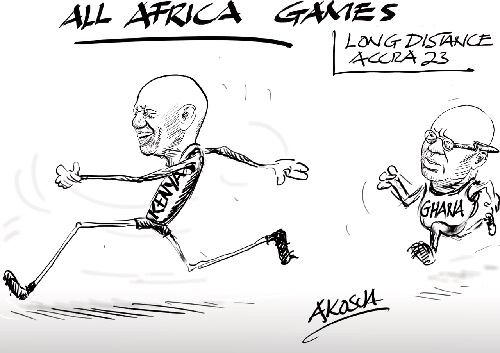
What do Nigerians call themselves after having lived in Kenya for five years?
Nothing. Well, at least, so you think until you find that you are no longer skipping the chapati tray on the buffet line; and you may even be looking forward to it. Or you realise that the nyama choma that you swore would never taste as good as your suya is starting to grow on you.
Or it dawns on you that you are using "by the way" a lot more than you used to, or singing full-throated the lyrics of Sauti Sol's Kuliko Jana, even though you have no idea what they are saying. You eventually give up when you start referring to anything ambiguous or arbitrary as "nini".
So, let us try once again: What do you call a Nigerian living in Kenya after five years? Simple; you call them African.
Is this not the charm of Africa, and of being African, that the culture is pervasive and almost universal that, despite the difference in creed, language and religion, for the most part, we are all the same?
That you can go anywhere on this continent as an African and feel at home, and that even when you are separated by language or culture, there is a warmth to be expected and to be received?
DIRT ROAD
A Kenyan colleague, during a recent trip to Ghana, remarked how similar a dirt road we were about to embark upon looked to one you would find in Kenya -- perhaps in Syokimau, near Nairobi. I reminded him that the road existed in every African city.
There is a danger, however, in universality and homogeneity, to be sure, and Africa is often painted with the same brush and tagged with the common identifiers -- war, disease, conflict, corruption and poor developmental indicators.
The danger in grouping like this is the risk of reducing complex problems, antecedents and histories to one broad stroke.
Certainly, a continent of 1.2 billion people cannot experience the social world the same way. But there is such a thing as African identity -- an Africanness, if you will, that should be celebrated.
For the record, I can still be relied upon to display my traditional attire every Friday, starched to almost appear as body armour, in glorious colours, complete with the polished loafers and a matching hat. This is the Nigerian way; we dress so they must know, who they are is not important, as long they know.
Some habits will never die -- like the Nigerian sense of occasion and grandeur, or our phone manners, when we talk, the conversation is between us, the person on the other end of the line and the entire world. You are welcome to be part of our dialogue.
GLOWING PRIDE
These habits are unlikely to disappear soon, nor should they; we should learn to celebrate the individuality in our commonness.
There is a lot to celebrate and, indeed, to learn. Living in Kenya for five years after what I had promised myself was going to be a short stint, I can still recall with glowing pride the day the Supreme Court nullified the presidential election in 2017 and ordered a new poll.
The politics of it will never be the thing that impressed me, all politics is subjective, but it was the decision itself. This kind of decision-making is not something Africans do, to decide their affairs and follow the letter of the law, without prodding or interference.
I felt a great swell of pride to be African, and to be living in Kenya. But what was more impressive was the acceptance of the judgment by all the parties involved.
I recall feeling that same sense of pride when Nigeria transitioned peacefully from the ruling party to the opposition in 2015. Kenya alone has a lot to note, if not celebrate, in the past five years. I have noticed a growth in infrastructure and development.
ROAD PROJECTS
Any West African will inform you how remarkable it is that construction is finished here in record time; a road project begins and, in record time, the road is usable. On our side of the world, the project starts, then starts again and begins one last time before we start invoking ancestral spirits.
On the Ghana trip, my colleague mentioned how frustrated he was with the mobile phone service and how difficult it was to maximise data. I told him this is true for most of West Africa and Kenya's digital space is leaps and bounds ahead.
Once again, there are things to celebrate and to note. Perhaps, it was in that spirit that a few of my Kenyan colleagues, after the excitement of beating Ethiopia and Ghana in football, boasted that they were ready for the Nigerian Super Eagles. Let us not get ahead of ourselves, please.
Let me try to answer the question I began with one last time, what do you call a Nigerian after living in Kenya for five years? It's simple; you call them brother or sister. Africa is home to us all.
Mr Oyateru, author of the novel, 'The Day the Madman Knew', is an international relations PhD student.
Read Full Story

















Facebook
Twitter
Pinterest
Instagram
Google+
YouTube
LinkedIn
RSS